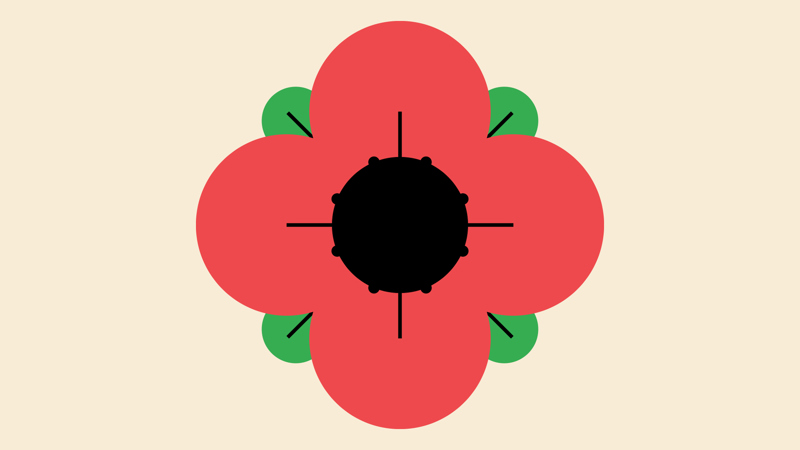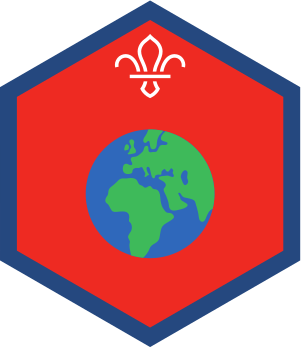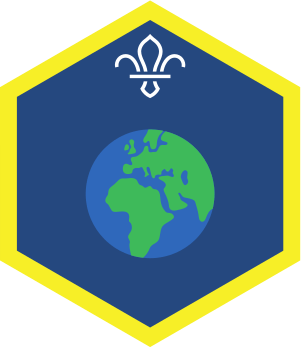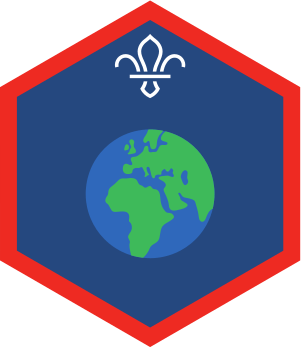
Write community thank you notes
You’ll need
- Pens or pencils
- Glue sticks
- Envelopes
- Different coloured or plain card/paper
- Craft items, such as buttons, stickers or ribbon
Before you begin
- Use the safety checklist to help you plan and risk assess your activity. There's also more guidance to help you carry out your risk assessment, including examples.
- Make sure all young people and adults involved in the activity know how to take part safely.
- Make sure you’ll have enough adult helpers. You may need some parents and carers to help.
Remembrance honours people who serve to defend our democratic freedom and way of life. We unite across faiths, cultures and backgrounds to remember the service and sacrifice of the Armed Forces community from the United Kingdom and the Commonwealth. We will remember them.
- We remember the sacrifice of the Armed Forces community from the United Kingdom and the Commonwealth.
- We pay tribute to the special contribution of families and of the emergency services.
- We acknowledge innocent civilians who’ve lost their lives in conflict and acts of terrorism.
Remembrance doesn’t glorify war and its symbol, the red poppy, is a sign of both Remembrance and hope for a peaceful future. Wearing a poppy isn’t compulsory but it’s greatly appreciated by those who it’s intended to support. When and how you choose to wear a poppy reflects your individual experiences and personal memories.
Remembrance unites people of all faiths, cultures and backgrounds, but it’s also deeply personal. It could mean wearing a poppy in November, joining with others in your community on a commemorative anniversary, or taking a moment on your own to pause and reflect. Everyone’s free to remember in their own way or to choose not to remember at all.
- Armistice Day is the 11 November. It marks the armistice agreement that bought an end to the fighting of the first world war.
- People pause at 11am on the 11 November to remember service and sacrifice past and present.
- The national service of Remembrance happens on the closest Sunday to 11 November, which is known as Remembrance Sunday. Each year people gather at the Cenotaph in London and other memorial sites.
- We call the whole period around these dates Remembrance. There are many ways to take part in Remembrance
The Royal British Legion remembers the Service of those who work to protect us and our ways of life.
Whether in the Armed Forces, Emergency or Civilian Services, past or present, we remember who has served, how they served and why it’s important that we continue to remember them.
Learning about Remembrance
- Gather everyone together.
- Take a moment to discuss Remembrance. Ask if anyone knows what it is and why we mark it.
- Ask if anyone knows what acts of service or service means. Explain that service or acts of service means helping someone, aid or benefit someone, lending a hand, or doing a good deed. It benefits an individual or a community, or even a country.
- Ask how people think service or act of service is linked with acts of Remembrance. Lots of people gave their lives to help their country and for the benefit of others.
- Ask everyone to close their eyes and think back over the last week, the last month and the last year. Ask them to think about the different people who’ve helped them. Who has helped us? What did they do?
- Now, ask everyone what acts of service do they think they do? How do they help to serve people in school, at home, their friends, at Scouts and in their local community? Has anyone done anything today or yesterday to help someone?
- Looking to the future, can they think of anything they can do tomorrow to help someone?
Running this activity
- Explain to the group that they're going to write thank you notes. They can give these notes to people who help or serve, or have helped, our communities to show them we appreciate what they do for us.
- Ask everyone to think who we could send notes to, then let people share their ideas.
- Remind everyone that although our loved ones, friends and teachers do help us every day, we can also write notes for people we don't know. Some ideas are:
- A doctor or nurse
- A police officer
- A firefighter
- A volunteer
- A bus or train driver
- A supermarket worker
- A lollipop person
- A cleaner
- A teacher
- A postal worker
- It’s time to get started. Everyone should decide on five people they'd like to write a note for.
- Remember to remind people not to include personal details, such as a telephone number, their full name or address. However, you could include your Scout group name.
- When everyone’s ready, hand out the paper or card, so everyone can start writing and making their notes. They should start by folding the card in half.
- Everyone could use craft items, such as buttons, felt tips, ribbon or stickers, to decorate them.
- Once it’s complete, you could pop the notes into envelopes or use a sticker to seal them shut, then write on the envelope who it's for.
For more information about Remembrance, see our Royal British Legion partner page.
Reflection
This activity allows us to think about what service means and how many people help us each day. It shows how our loved ones and community support us in our lives. Why’s it important to say thank you? How can we show appreciation for what they do? How can we support them in return?
This activity is intrinsically linked with acts of Remembrance. We will still remember the service and sacrifice of those who served their country and protected us, along with those who continue to serve and protect us.
Safety
All activities must be safely managed. You must complete a thorough risk assessment and take appropriate steps to reduce risk. Use the safety checklist to help you plan and risk assess your activity. Always get approval for the activity, and have suitable supervision and an InTouch process.
- Glue and solvents
Always supervise young people appropriately when they’re using glue and solvent products. Make sure there’s plenty of ventilation. Be aware of any medical conditions that could be affected by glue or solvent use and make adjustments as needed.
You could write a group or patrol letter for members of the local community, place of worship or youth center to say thank you for the opportunities they provide.
You can have the discussion together to help people come up with ideas and have a few ideas written down too to help people.
If they find it difficult, you could have a ready-made list of people to write to as well as a bank of sentences the young people could use to formulate their notes.
All Scout activities should be inclusive and accessible.


